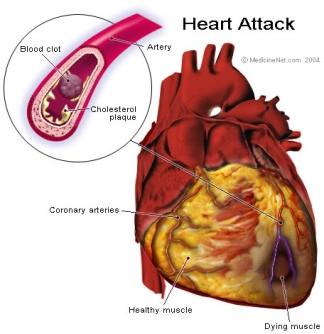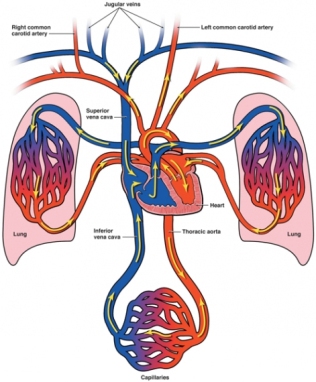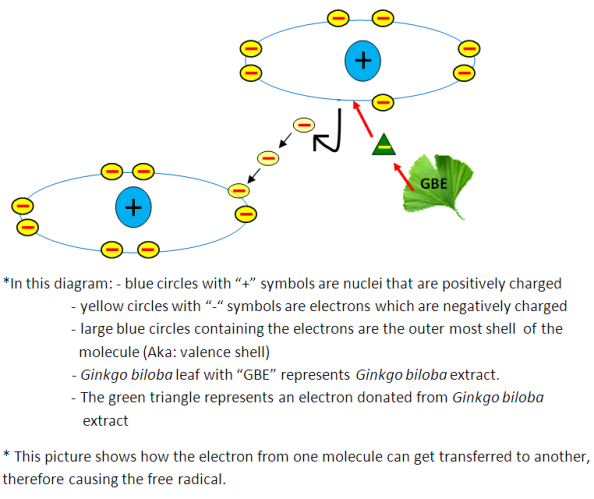Medicinal Purposes
Ginkgo biloba is not only amazing because it can ward off insects and
survive in polluted environments, but also because it has an enormous
amount of medicinal purposes! Ginkgo biloba can help combat the
aging process by increasing blood, enhancing memory, fighting glaucoma,
maintaining cellular function, and it can also aid in cancer prevention!
ANCIENT CHINESE MEDICATION
The ancient Chinese
people have been using the Ginkgo biloba for thousands and thousands of
years (as early as 2800 B.C.E.). They found that the outer covering on
the seed (sometimes referred to as the fruit, but don’t be fooled, these
plants have “naked” seeds and do not bear fruit) was poisonous to the
human body and caused skin rashes. However, they kept using bits
and
parts of the Ginkgo tree and soon found its seeds and leaves could be
used for
 medication. They used the seeds and leaves to treat diseases
such as Asthma and Tuberculosis. Ginkgo biloba was also used to
aid in mental performance and blood flow. The ancient Chinese people believed
that roasted seeds could help prevent drunkenness. Even today, roasted
Ginkgo seeds can be found at many Chinese and Japanese wedding
celebrations in order to prevent people from getting too drunk.
medication. They used the seeds and leaves to treat diseases
such as Asthma and Tuberculosis. Ginkgo biloba was also used to
aid in mental performance and blood flow. The ancient Chinese people believed
that roasted seeds could help prevent drunkenness. Even today, roasted
Ginkgo seeds can be found at many Chinese and Japanese wedding
celebrations in order to prevent people from getting too drunk.
PRESENT DAY
Today, we use Ginkgo biloba extract (GBE) for two main reasons:
to increase blood circulation and to rid the body of free radicals,
which can improve bodily functions greatly. Free radicals have been found to be part of the cause in most
cancers. Ginkgo biloba can also benefit people who have
Glaucoma, Tinnitus, Cerebral Insufficiency, Macular Degeneration, Male
Impotence, and many others. A major claim that has been found to be
somewhat inaccurate is that Ginkgo biloba can actually help prevent against
Alzheimer’s disease. If you would like to learn more about the effects
Ginkgo biloba has on Alzheimer's disease, click
HERE.
Increasing Blood Flow Circulation:
Before explaining how the
Ginkgo biloba can help unclog arteries, let me quickly explain
the components of human blood. First, there are erythrocytes (often
called Red Blood Cells or RBC’s). The function of erythrocytes is to carry
oxygen from the lungs to the heart and then out to the body. Leukocytes
(often referred to as White Blood Cells or WBC's) are another crucial
component; they defend the body against invaders, such as viruses
and bacteria. Plasma is
 the next component to human blood. Plasma is
composed mainly of liquid, but it does have some proteins, salts, and
other substances in it as well. The job of plasma is to make the blood
fluid enough so it can be efficiently transported throughout the body. Finally, there are
platelets. Platelets
function to help clot blood once a blood vessel is broken. Ginkgo biloba
has the most effect on the platelets of blood.
the next component to human blood. Plasma is
composed mainly of liquid, but it does have some proteins, salts, and
other substances in it as well. The job of plasma is to make the blood
fluid enough so it can be efficiently transported throughout the body. Finally, there are
platelets. Platelets
function to help clot blood once a blood vessel is broken. Ginkgo biloba
has the most effect on the platelets of blood.
ARTERIOSCLEROSIS is a disease that hardens the arteries usually due to
older age.
ATHEROSCLEROSIS is a disease where fats and ‘bad’ (low
density lipoprotein) cholesterol build up in the arteries and
capillaries causing them to get clogged;
Ginkgo
biloba can help fight against both of these diseases. Ginkgo biloba is
also known to treat cerebral insufficiency, or decreased blood flow to
the brain. It works against all of these diseases by reducing the
“stickiness” of the blood platelets along with opening constricted blood
vessels that tend to cause cramps, strokes, or even heart attacks.
Ginkgo biloba also thins the blood. (Because G. biloba is a blood
thinner, one shouldn’t take it and any other blood thinners, such as
Aspirin or Ibuprofen, simultaneously.) Ginkgo biloba aids in keeping this
fine balance by helping to deliver glucose to cells, tissues and organs
through the bloodstream. In return, the blood vessels have the energy
they need to remain flexible yet strong.
 With
a more efficient means of transporting blood, the heart should not have
to work as hard to pump sufficient oxygen throughout the body and
therefore it should not get worn out as quickly.
With
a more efficient means of transporting blood, the heart should not have
to work as hard to pump sufficient oxygen throughout the body and
therefore it should not get worn out as quickly.
The reason Ginkgo biloba is said to have so many health benefits is
greatly due to the newly opened blood vessels. Concentration and memory,
confusion, fatigue, depression, anxiety, headaches, and dizziness are
all symptoms of an inadequate blood flow to the brain. Because
Ginkgo biloba can increase blood flow, all of these symptoms can be reduced. As
stated earlier, Ginkgo biloba can also aid in the prevention of cramps,
strokes, and heart attacks. This is because these serious problems are
many times a result from a blocked or impassable artery, vein, or
capillary. Take for instance, a cramp in a leg. The cramp is caused by
the insufficient flow of blood to the muscle, which therefore means that
there is not enough oxygen getting to the cells. Increased oxygen flow
(Ginkgo biloba) will cause the pain to lessen and, quite possibly, go
away completely. Almost any disease or problem that is caused by
inadequate blood flow because of a constricted artery, vein, or
capillary can be reduced by taking Ginkgo biloba.
times a result from a blocked or impassable artery, vein, or
capillary. Take for instance, a cramp in a leg. The cramp is caused by
the insufficient flow of blood to the muscle, which therefore means that
there is not enough oxygen getting to the cells. Increased oxygen flow
(Ginkgo biloba) will cause the pain to lessen and, quite possibly, go
away completely. Almost any disease or problem that is caused by
inadequate blood flow because of a constricted artery, vein, or
capillary can be reduced by taking Ginkgo biloba.
Free Radicals:
In order to understand
how the Ginkgo biloba aids in the deletion of free radicals, we must
first understand what free radicals are and how they work. A free
radical is a molecule inside the body that is not stable any longer
because it has lost an electron from its structure. When a molecule
loses only one electron, it becomes very unstable until it replaces that
electron. Therefore, when a molecule loses an electron in your body, it
grabs another one from different cell tissues and such in order to
become stable again. This causes the cell tissue to become unstable and
scavenge for an electron for itself. The chain continues until there
becomes a mutated cell, which then divides and becomes multiple mutated
cells. Because of this, some scientists suspect free radicals to aid in
causing cancer. In every body there are some free radicals, and that is
a good thing; Free radicals help your immune system (white blood cells)
fight off diseases and infections. A problem emerges when a body has too
many free radicals. Free radicals can be caused by pollution in the air
and water, old age, and also radiation.
There is a way to get rid
of free radicals in the body. Ginkgo biloba along with other
antioxidants (such as the
Pomegranate) can donate an electron from their own make up and stop the
cascading chain of free radicals. Ginkgo biloba can do this because it
can still be a stable molecule even after an electron is donated. This is
why G. biloba is considered to aid in the prevention of cancer.
According to the book ‘Ginkgo: a practical guide’ Ginkgo biloba is
considered to be the most effective antidote to the breakdown of cells
due to radiation (from the sun or chemotherapy). To find out what
exactly is in the Ginkgo biloba that allows it to break down these free
radicals, click HERE.

Tinnitus, Glaucoma, Cerebral Insufficiency, and
Others:
Ginkgo biloba can help to
heal many diseases due to its simple ability to open even the tiniest of capillaries. Tinnitus is a disease in which
the patient constantly has ringing in his or her ears. Glaucoma is a
disease that leads to blindness and it is caused by damage to the optic
nerve, or the nerve that runs information from the back of the eye to
the brain. Both of these diseases can be reduced in severity by taking
Ginkgo biloba. This is because G. biloba can open even the most minute
of capillaries, such as the ones in your eyes and ears, and allow increased
blood flow to the damaged tissues. Some other diseases that can be
reduced in severity due to the Ginkgo biloba are Macular Degeneration
and Male Impotence (erectile dysfunction). Today, research is being done
to see if Ginkgo biloba can help in premenstrual syndrome (PMS)
symptoms, asthma, and Hepatitis B. People who have been diagnosed with
depression commonly take Ginkgo biloba extract as a natural
antidepressant, as well.
Side effects
One of the main reasons
Ginkgo biloba is so astounding is because it has very few side effects and
these side effects usually aren’t very serious. Rarely, Ginkgo biloba
shows side effects, with the most severe usually being an upset stomach,
vomiting, and/or a headache. Occasionally, there have been reports of
bleeding, so don’t take it if you have coagulation problems or if you are
planning on having surgery. Some cases also showed symptoms of diarrhea,
but these reports were also found in the placebo group, so scientists are
unsure of whether Ginkgo biloba actually caused them. Overall, the
Ginkgo biloba has very few side effects relative to prescription
medication that can be taken for the same health benefits.
symptoms of diarrhea,
but these reports were also found in the placebo group, so scientists are
unsure of whether Ginkgo biloba actually caused them. Overall, the
Ginkgo biloba has very few side effects relative to prescription
medication that can be taken for the same health benefits.
In general, Ginkgo biloba has proven that it can help heal and prevent
many diseases or even just symptoms. It can improve functions of
the eye as well as functions of the heart and even the brain. Click
HERE
to see just how Ginkgo biloba actually works.
